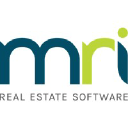5 Best Real Estate Asset Management Software in 2024
1. Buildium
- Simplified day-to-day operations
- Efficiency in terms of time and costs
- Improved tenant services
- Effective property maintenance

Buildium is a comprehensive property management software that simplifies day-to-day operations, improves tenant services, and offers effective property maintenance. With pricing plans starting at $50 per month and a 14-day free trial, Buildium provides a user-friendly solution for managing residential properties.
Key features include a dedicated online tenant portal, lease tracking, maintenance management, and automated rent and fee reminders, making it an ideal choice for property managers looking to streamline their operations.
2. Rentec Direct
- Comprehensive financial reports for informed decision making
- Customizable to suit different property management needs
- User-friendly interface for easy learning and navigation

Rentec Direct is a comprehensive property management software designed to simplify and optimize property management tasks, offering customizable solutions for different property management needs. With features for online rent collection, maintenance requests, and detailed financial reporting, Rentec Direct is the ideal tool for efficient and effective real estate management.
3. MRI Software
- Comprehensive management of real estate and investment properties
- Cloud-based platform for accessibility and scalability
- Robust feature set including accounting, reporting, and property lifecycle management

MRI Software is a powerful cloud-based management solution designed for real estate and investment property professionals. With scalable pricing options and a comprehensive suite of features, MRI Software streamlines property management tasks, delivers valuable insights, and drives strategic growth.
From financial management to facilities maintenance, MRI Software offers a reliable and intuitive platform for efficient real estate operations and decision-making.
4. AppFolio
- Efficient property management with online portals and automated processes
- Streamlined operation for residential, commercial, student housing, and community associations
- Optimized workflow and productivity with online applications and tenant screening

AppFolio is a cloud-based property management software designed to streamline operations for residential, commercial, student housing, and community associations. It offers online portals, automated processes, and optimized workflows to enhance property management efficiency.
With AppFolio, users can manage their properties, applications, tenant screenings, and more, all in one integrated platform.
5. Cozy
- User-friendly interface
- High security and data encryption
- Automatic file syncing across devices

Cozy is a secure and user-friendly cloud storage solution that provides seamless file syncing and top-notch security features. With flexible pricing plans, it's suitable for individuals, freelancers, and businesses alike.
Experience hassle-free file management with Cozy and ensure the security of your valuable data.
FAQ
What are the key features to look for in real estate asset management software?
When evaluating real estate asset management software, it's essential to look for key features such as
- portfolio management capabilities,
- financial analysis tools,
- lease management functionality,
- reporting and analytics features,
- integration with accounting systems.
These elements are crucial for effectively managing real estate assets and maximizing returns.
How can real estate asset management software improve operational efficiency for construction businesses?
Real estate asset management software enhances operational efficiency for construction businesses by
- automating property maintenance schedules and tasks,
- streamlining lease management processes,
- providing real-time financial insights,
- integrating with project management systems,
- facilitating communication and collaboration among stakeholders.
These capabilities enable construction businesses to optimize their asset management operations.
What role does data analytics play in real estate asset management software?
Data analytics is integral to real estate asset management software as it enables
- predictive maintenance for properties,
- financial forecasting and risk assessment,
- tenant performance analysis,
- market trend identification,
- investment decision support.
By harnessing data analytics, businesses can make informed decisions and identify opportunities for growth and optimization.
How does real estate asset management software contribute to risk mitigation and compliance?
Real estate asset management software contributes to risk mitigation and compliance by
- automating regulatory compliance processes,
- providing audit trails for financial transactions,
- conducting due diligence for property acquisitions,
- monitoring insurance coverage and claims,
- identifying potential operational and financial risks.
These functions help businesses maintain compliance and minimize risks within their real estate portfolios.
What are the considerations for selecting the right real estate asset management software for a construction business?
When choosing real estate asset management software for a construction business, it's important to consider factors such as
- scalability and customization options,
- integration with existing construction management tools,
- vendor reputation and support services,
- mobile accessibility and user interface,
- cost-effectiveness and return on investment.
These considerations ensure that the selected software aligns with the specific needs and objectives of the construction business.

FAQ
When evaluating real estate asset management software, it's essential to look for key features such as
- portfolio management capabilities,
- financial analysis tools,
- lease management functionality,
- reporting and analytics features,
- integration with accounting systems.
These elements are crucial for effectively managing real estate assets and maximizing returns.
Real estate asset management software enhances operational efficiency for construction businesses by
- automating property maintenance schedules and tasks,
- streamlining lease management processes,
- providing real-time financial insights,
- integrating with project management systems,
- facilitating communication and collaboration among stakeholders.
These capabilities enable construction businesses to optimize their asset management operations.
Data analytics is integral to real estate asset management software as it enables
- predictive maintenance for properties,
- financial forecasting and risk assessment,
- tenant performance analysis,
- market trend identification,
- investment decision support.
By harnessing data analytics, businesses can make informed decisions and identify opportunities for growth and optimization.
Real estate asset management software contributes to risk mitigation and compliance by
- automating regulatory compliance processes,
- providing audit trails for financial transactions,
- conducting due diligence for property acquisitions,
- monitoring insurance coverage and claims,
- identifying potential operational and financial risks.
These functions help businesses maintain compliance and minimize risks within their real estate portfolios.
When choosing real estate asset management software for a construction business, it's important to consider factors such as
- scalability and customization options,
- integration with existing construction management tools,
- vendor reputation and support services,
- mobile accessibility and user interface,
- cost-effectiveness and return on investment.
These considerations ensure that the selected software aligns with the specific needs and objectives of the construction business.